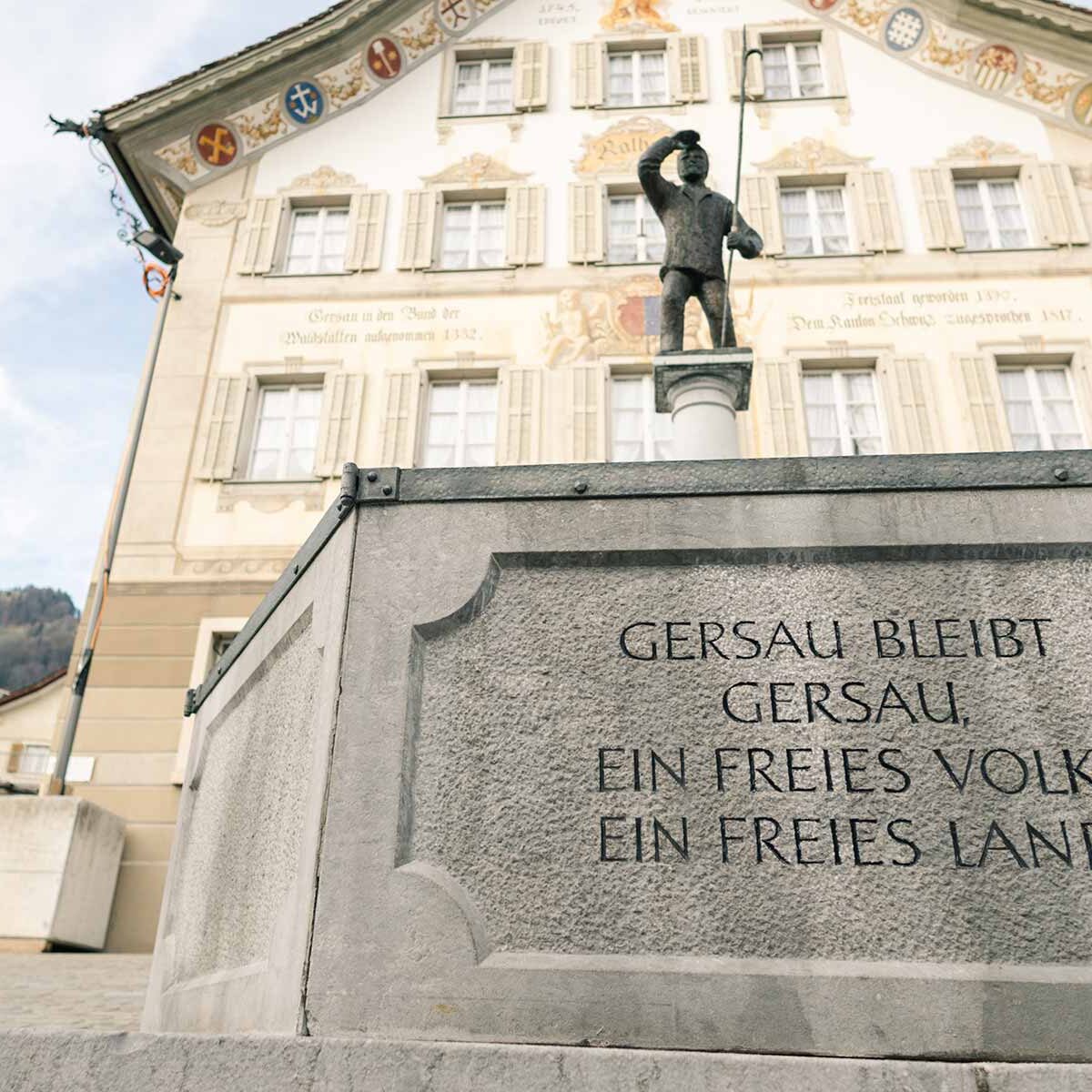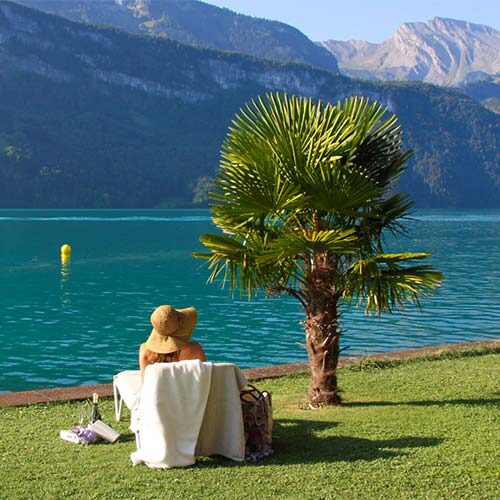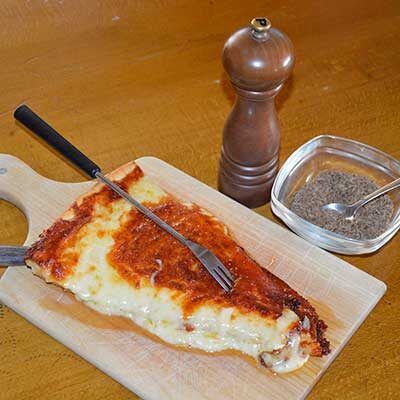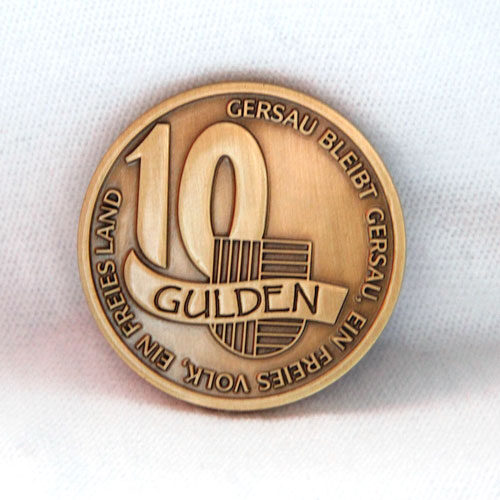about Gersau
"Gersauern"
Do you know what that means?
The expression "gersauern" is still popularly used today. If someone does something wrong, strange or funny or is carried out in a funny way, they are told: "Du gersauerst" (You act like a Gersauer). It is a prerogative of such small, strange, remote places.
The expression was first mentioned in the chronicle of Diebold Schilling from Lucerne in 1513! So it has been around for a while!
Source: Gersau - Unikum in der Schweizer Geschichte by Albert Müller

Gersau - formerly the smallest republic in the world
A brief history of the former Republic of Gersau
For 411 years, the village of Gersau was a free place under the protectorate of the Swiss Confederates, an independent republic for 368 years and the smallest free state in Europe with an area of just 24 km2. Gersau was once only accessible by canoe, rowing boat or on foot. The village lies at the southern foot of the Rigi in a climatically sheltered bay on Lake Lucerne.
The first written mention of Gersau is found in 1064 in the founder's book of Muri Abbey. The first landlords of Gersau were the Counts of Lenzburg, who founded Muri Abbey.
The Engelberg monastery bought 1345 Planggenalp from the Gersauers. Another important alliance was 1359 confirmed: Uri, Schwyz, Unterwalden and Lucerne admit Gersau and Weggis to the Confederation.
Decisive changes took place when the Gersauers set about buying the seigniorial rights themselves. Four years after the Battle of Sempach (1386), they acquired "courts and taxes" from the von Moos siblings for 690 pounds Plappart. It is assumed that this was possible because of the sale of Planggenalp. Court jurisdiction and bailiwick are thus transferred to Gersau. Gersau became a free town, a free commune and a place belonging to the Confederation. The 1390 The Gersauers can be proud of their acquired liberal status. 1433 confirmed by Emperor Sigismund. This is the beginning of the Republic of Gersau, a free state with imperial immediacy.
After the occupation by the French 1798 and the provisional end of the republic, Gersau is assigned to the canton of Waldstätten for 5 years. During the Meditation 1803-1813, Gersau is then assigned to the Canton of Schwyz as the district of Gersau. The citizens of Gersau wanted a return to the independent community that had existed before the French Revolution. On 2 February 1814 The Republic is proclaimed for the second time in Gersau.
In the year 1817 On 22 July, Gersau was then awarded to the canton of Schwyz against its will at the Tagsatzung in Bern. 13.5 cantons were in favour, four central Swiss cantons, Fribourg and Appenzell Ausserrhoden were against. From 1818 Gersau is now the second-named district in the canton of Schwyz.

One of the mildest climates in Switzerland
A southern climate
The pretty village on the southern slope of the Rigi is located directly on Lake Lucerne. Gersau owes its mild climate and its reputation as the "Riviera of Central Switzerland" to this location. In addition to sweet chestnuts and figs, even palm trees thrive here, giving this traditional village in the heart of Switzerland an almost Mediterranean ambience.

Gersau specialities
Gersauer Käsekuchen (salty cheese tart)
The Gersau cheesecake is known far beyond the region. Savour the crispy yeast dough base, real Swiss cheese and a big pinch of mystery! You can enjoy it in various restaurants or buy it in the shop and prepare it at home, preferably with a salad.
Gersauer Rahmschinken (creamed patisserie)
Attention, this is a dessert! It is called "ham" because it was originally made in the shape of a ham. The creamed ham consists of biscuit, vanilla cream and cream and is garnished with chocolate powder. It is served with a mysterious berry sauce.
Other specialities
The people of Gersau are tradition-conscious. In the kitchen, too. Here, Gersau housewives reveal 24 traditional recipes:

Gersauer Gulden
In times of fluctuating exchange rates, economically savvy Gersauers decided to set up their own currency - the Gersauer Gulden. 10 Gulden are equivalent to 10 swiss francs.
These unique guilders are recognised throughout the Old French Republic and can be used in the Tourist office and in the Village shop in Gersau.
Beautifully wrapped, this is a great gift!


